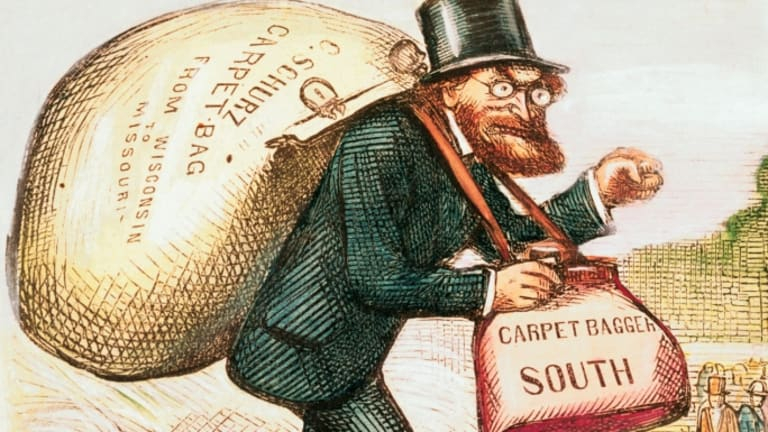Scalawags and Carpetbaggers
The South's pre-war economic, social, and political position broke down as a result of its defeat. The majority of Confederate military and political leaders were temporarily barred from taking part in politics, which resulted in a power vacuum. This also prompted the rise of two disparagingly named factions known as Carpetbaggers and Scalawags. It is also one of the major effects of the American Civil War.
Scalawags, a term used to describe native white Southerners who backed the federal rebuilding plan and worked with the blacks, were considered to be useless livestock. Most of them were modest Unionist farmers, merchants, and other professionals who did not own slaves and had supported the Union throughout the Civil War. Despite being despised in the South, the Scalawags made up close to 20% of white voters and had significant power, especially after the Civil War.
A poor traveler who only has a carpetbag when they arrive is referred to as a "Carpetbagger" because they take advantage of their surroundings to gradually fill up their bags. The word was used to refer to the white Northerners who relocated to the south following the Civil War, either for financial gain or ideological reasons. There were a lot of educated middle-class carpetbaggers from different backgrounds. They viewed themselves as reformers and sought to recreate the North in the post-war South. The southerners despised carpetbaggers as low-class, opportunistic immigrants looking to profit from their misfortune.











